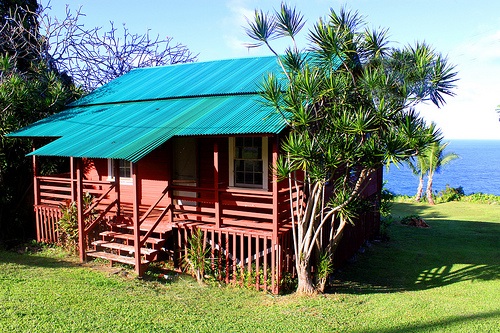Distressed Real Estate Investing 101
 As someone with a Masters Degree in Real Estate from Columbia University who also has first-hand knowledge investing in distressed real estate, I’m frequently asked by people how to make their fortune in today’s difficult real estate environment. Due to the economic crisis there are once in a lifetime opportunities to be had. For those that really know what they are doing, a financial killing can be made in foreclosure, REO and Short Sale properties. But where do you start? Read this article and you’ll be on your way.
As someone with a Masters Degree in Real Estate from Columbia University who also has first-hand knowledge investing in distressed real estate, I’m frequently asked by people how to make their fortune in today’s difficult real estate environment. Due to the economic crisis there are once in a lifetime opportunities to be had. For those that really know what they are doing, a financial killing can be made in foreclosure, REO and Short Sale properties. But where do you start? Read this article and you’ll be on your way.
Foreclosure Properties
The most commonly heard of distressed property type is the foreclosure. A foreclosure is a property in which the bank has initiated a process of taking back ownership of a property from a private party. This usually occurs when a home’s owner has fallen behind on his mortgage and can no longer afford to make payments yet has a balance left on his note.
The purpose of foreclosure is for the bank to be able to recover the money it has lent to the owner by selling the property. This is done through an auction process which is overseen by a court with the starting price of the property equal to the amount still owed on the property. While sometimes this is much less than the actual value of the property, usually bidding ends up raising the eventual sale price to at or above the ‘market’ value and thus it can be tricky to get a great deal.
REO Properties
If a property fails to sell during the foreclosure auction process the property reverts to ownership by the bank or lender on the property. The property is then called a REO or ‘Real Estate Owned’ property. Typically the property fails to sell at auction because the value of the asset (property) does not cover the liabilities (amount owed the bank) and no one was willing to pay enough to cover the debt. This can happen for a variety of reasons such as the property being in poor physical condition, a bad location or if the real estate market has gone down since the purchase of the property.
After a property becomes an REO, it is typically put back up for sale by a realtor just as if it were for sale by a private party. First, however, the bank goes through the work of clearing existing liens and other obligations to make a ‘clean title’. REO properties can be an opportunity to get a great value because often they can be purchased for less than if someone were to bid on the foreclosure auction.
Short Sale Properties
Finally, there is another kind of distressed situation called a Short Sale Property. In a Short Sale situation the value of a property won’t cover the loan that is on the property yet the property has not yet entered foreclosure. The seller is under financial distress and usually in a situation where they need to be ‘bailed out’.
In a Short Sale, sometimes a highly qualified buyer can convince a lender or bank to agree to take less than the full amount to satisfy the debt on the property in order to avoid the original owner from defaulting and having to go through the entire foreclosure and REO process.
This is sometimes possible because it is quite an expensive and time consuming ordeal to go through foreclosure and all the ensuing complications and management of the property. A bank’s job is not property management and they would prefer not to tie up valuable staff and financial resources if they can get out quickly, take a manageable loss and get back to their business of lending money.
